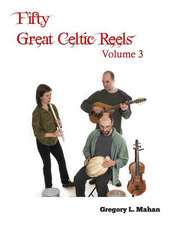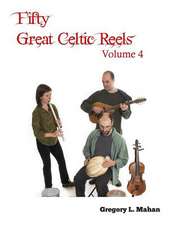Sexing the Groove: Popular Music and Gender
Editat de Sheila Whiteleyen Limba Engleză Paperback – 2 oct 1997
Sexing the Groove also includes a comprehensive annotated bibliography for further reading and research into gender and popular music.
| Toate formatele și edițiile | Preț | Express |
|---|---|---|
| Paperback (1) | 360.05 lei 6-8 săpt. | |
| Taylor & Francis – 2 oct 1997 | 360.05 lei 6-8 săpt. | |
| Hardback (1) | 1124.39 lei 6-8 săpt. | |
| Taylor & Francis – 2 oct 1997 | 1124.39 lei 6-8 săpt. |
Preț: 360.05 lei
Nou
Puncte Express: 540
Preț estimativ în valută:
68.89€ • 71.93$ • 57.02£
68.89€ • 71.93$ • 57.02£
Carte tipărită la comandă
Livrare economică 04-18 aprilie
Preluare comenzi: 021 569.72.76
Specificații
ISBN-13: 9780415146715
ISBN-10: 0415146712
Pagini: 390
Ilustrații: music
Dimensiuni: 156 x 234 x 23 mm
Greutate: 0.54 kg
Ediția:New.
Editura: Taylor & Francis
Colecția Routledge
Locul publicării:Oxford, United Kingdom
ISBN-10: 0415146712
Pagini: 390
Ilustrații: music
Dimensiuni: 156 x 234 x 23 mm
Greutate: 0.54 kg
Ediția:New.
Editura: Taylor & Francis
Colecția Routledge
Locul publicării:Oxford, United Kingdom
Public țintă
Postgraduate and UndergraduateCuprins
Contributors: Mavis Bayton, Stella Bruzzi, Norma Coates, Sara Cohen, Sean Cubitt, Charlotte Crieg, Mary Celeste Kearney, Stan Hawkins, Marion Leonard, Paul McDoanld, Keith Negus, Gareth Palmer, David Sanjek, Will Straw
Descriere
Using a variety of methodologies and a wide range of case studies, the contributors describe and debate how pop music performers, subcultures, fans and texts construct and deconstruct "masculine" and "feminine" identities.




















